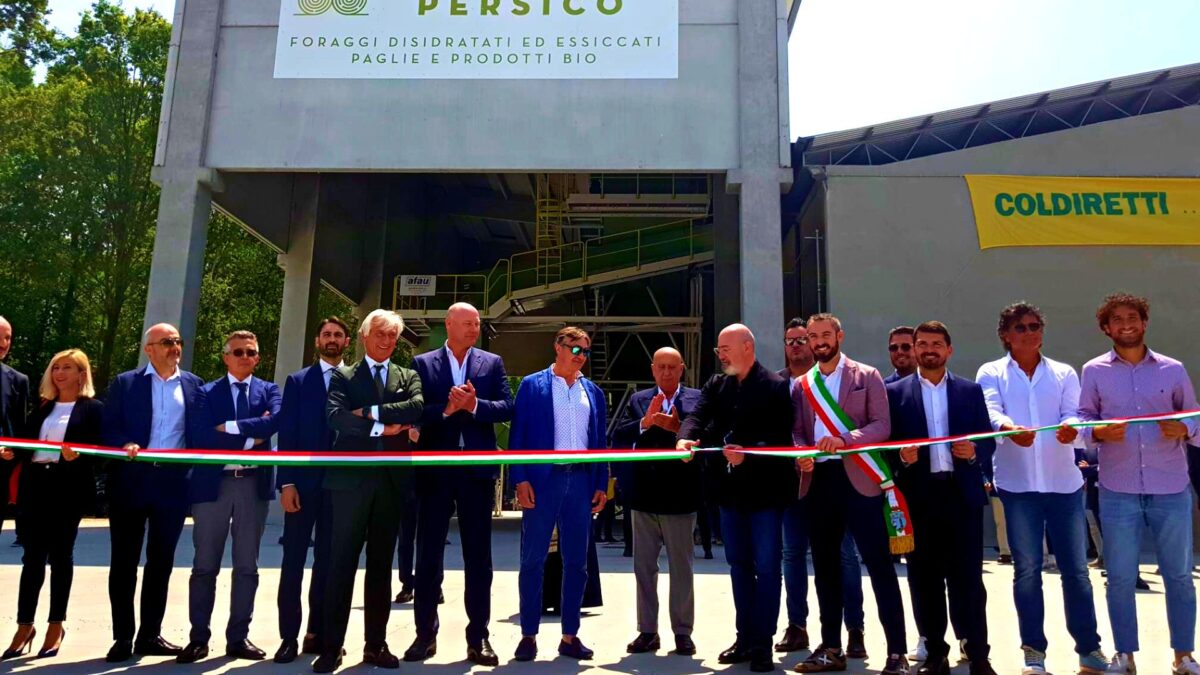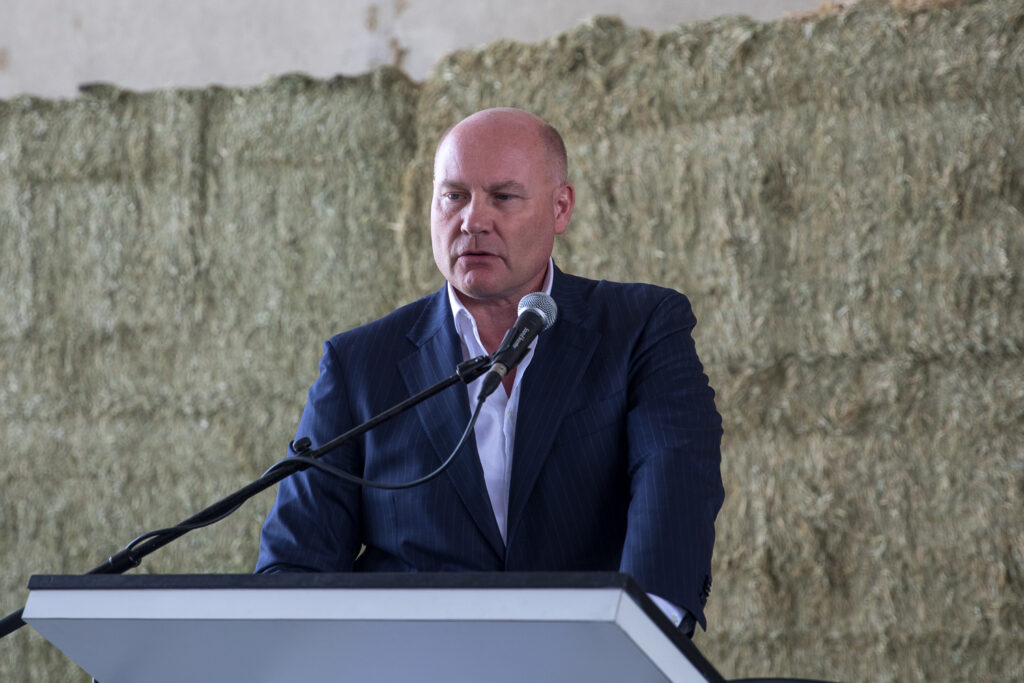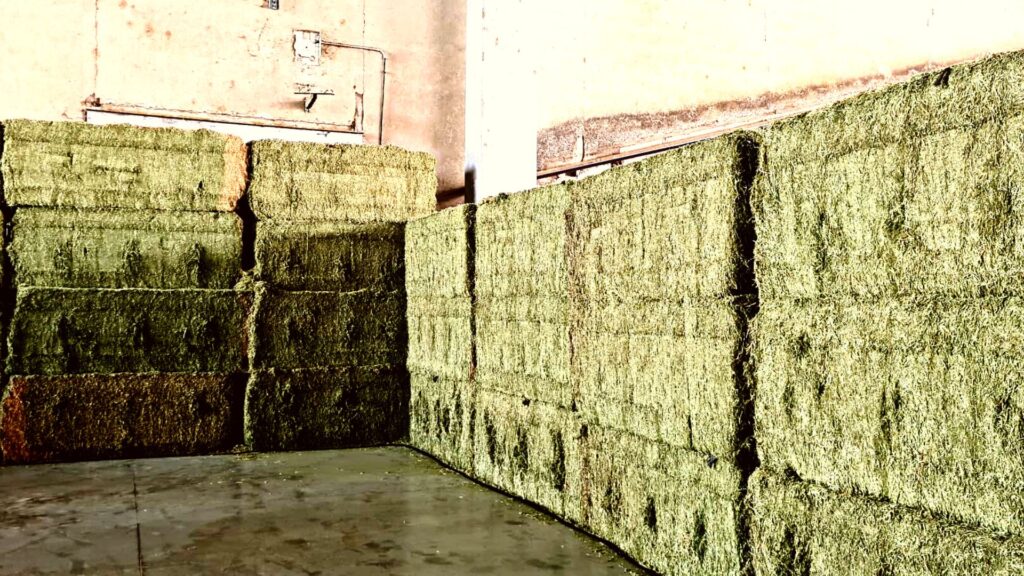The new industrial plants of the Ferrara-based company L’Erba del Persico have been inaugurated. The production capacity will be doubled, offering excellent, certified and traceable fodder. Thanks to investments made by the BF S.p.A. Group, the L’Erba del Persico aims to become a leading global player in the fodder market.
It all began in 1985 when the Bruni brothers took over a cooperative stable so that it could store alfalfa. Ten years later, the brothers set up their first dehydration plant. Today, they have made a giant leap: in fact, once fully operational, the plant will bring the production capacity to 800,000 quintals per year, assigning the L’Erba del Persico plays a key role in Italy’s agri-food industry. We are in the small hamlet of Ripapersico, in the province of Ferrara (Emilia-Romagna) where the company’s new industrial plants were inaugurated just a few days ago. Thanks to major investments by the BF S.p.A. Group, it is now equipped with state-of-the-art machinery for dehydrating alfalfa.
BF Group’s shareholding, in partnership with the Saltarelli-Migiani Group, in L’Erba del Persico has allowed new strategies to be devised and new industrial targets to be set, as explained by Federico Vecchioni, CEO of BF S.p.A.: ‘As shareholders of l’Erba del Persico, we are delighted to see that this new production plant has been completed and is ready to be put into operation. This was made possible through investments that were intended to help strengthen agricultural entrepreneurship in Italy as part of a project aimed at internationalisation, which is its natural target market. At this time in history, marked by huge challenges both nationally and internationally, BF S.p.A. will continue – in its role as Italy’s largest agribusiness company and in collaboration with major Italian businesses such as, in this case, the Saltarelli-Migiani Group – to work on projects that have positive economic and social implications for the areas in which it operates.’
Today, L’Erba del Persico has new facilities equipped with a high-tech plant that meets the highest standards of environmental sustainability and occupational safety. Having two integrated processes will effectively double its production output, which currently amounts to 400 quintals per year:
- one line is dedicated to grinding and palletising fodder in order to produce what appears to be some kind of flour, which is then compacted so that it can be transported;
- the other line is for dehydrating alfalfa, which is no longer ground, resulting in long-fibre alfalfa.
With the first line, a product that the farmers supply L’Erba del Persico with, regardless of when it is harvested, is processed; with the second line, instead, a “fresh” product is processed, which has just been harvested from the lands owned by the farm Terre del Persico (2,000 hectares of agricultural land), resulting in a new product with greater added value.
The event was attended by Stefano Bonaccini, President of the Emilia-Romagna Regional Government, Alessio Mammi, Councillor for Agriculture of the Emilia-Romagna Region, Dario Bernardi, Mayor of Portomaggiore, Enzo Gesmundo, Secretary General of Coldiretti, Paolo Bruni and Tiziano Migiani, respectively President and CEO of L’Erba del Persico, Federico Vecchioni, CEO of BF S.p.A., and Mauro Saltarelli of the Saltarelli-Migiani Group.
In this way, L’Erba del Persico becomes one of Italy’s key players when it comes to quality standards and production capacity in the animal feed supply chain, creating a link between alfalfa suppliers and farms all over the world, mostly located in Europe, China, Arab countries, and South Korea.
Alfalfa Is Good For Farming
Alfalfa is a highly prized product, which is vital not only for farmers rearing milk-producing cows, but also for farmers who do not have cowsheds and that need to plan crop rotations.
It has several very interesting agronomic advantages. The fact that it is cut regularly and grown for four to five years means that it drastically reduces the number of weeds that are usually found in cereal fields, and thus the use of weedkillers can be significantly reduced, and it also interrupts the reproductive cycles of certain insects that are harmful to maize. Besides its microbial activity, alfalfa naturally and sustainably supplies the soil with the right amount of nitrogen. Moreover, it reduces soil surface erosion, since the root system regenerates over a number of years, creating a network in the soil that promotes water infiltration.
Consequently, the enhanced activities of L’Erba del Persico are also helping Italian farmers, in particular farms located in hilly areas, who see alfalfa as an opportunity, as it improves crop rotation profitability.



